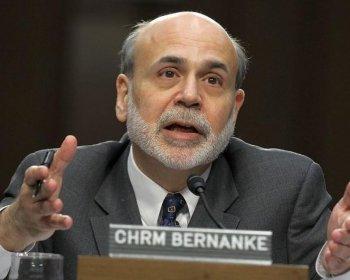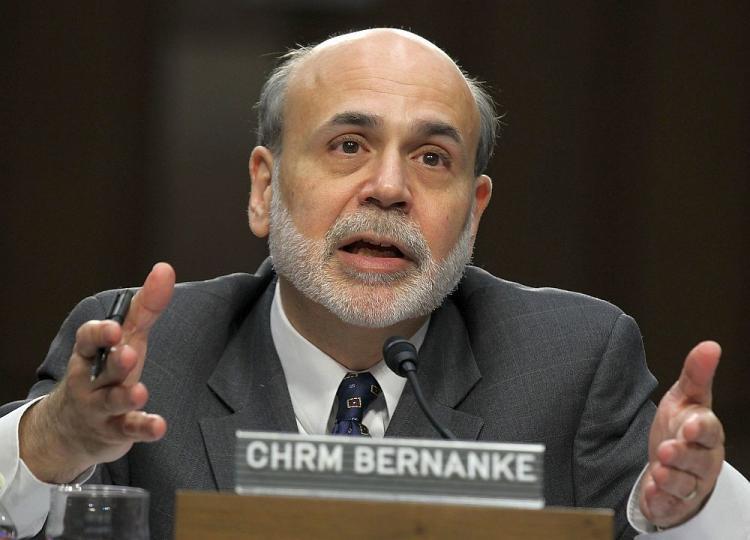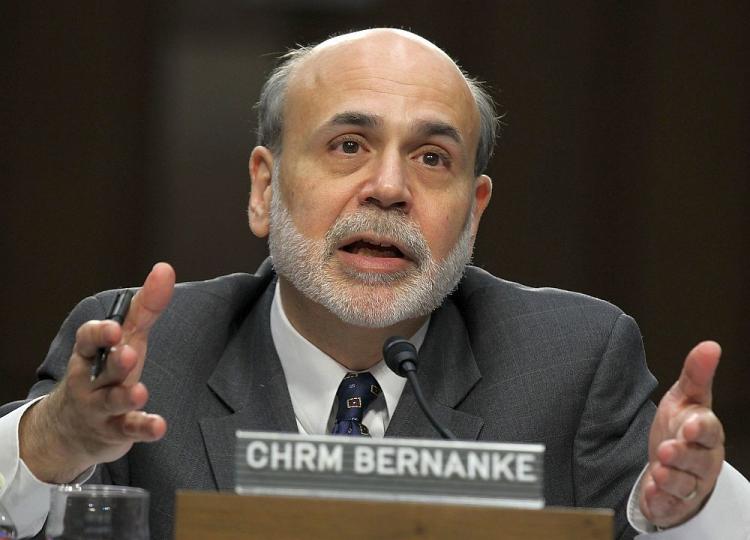WASHINGTON—In a sweeping economic update framed for business journalists, Federal Reserve Chairman Ben Bernanke said it will likely be several years before unemployment rates fall.
Bernanke explained that Congress must take substantive action to reduce the debt, or else further economic turmoil is near certain.
As the number of young people expected to enter the job market in 2011 matches the total predicted economic growth, Americans can expect to see little or no change in unemployment rates.
“Growth has not been fast enough to bring about significant improvement in the labor market,” said Bernanke at a National Press Club luncheon. “The consequences could last a very long time. ... It is going to take a while.”
From an overall economic perspective, the 9.5 percent unemployment rate is “a very large waste of human resources,” lamented Bernanke.
The Fed chairman noted that 45 percent of those out of work have been out of work for six months. He explained that if these people don’t find work soon, they will face the additional problems of skills losses, loss of contacts, and wage reductions.
Aside from this dismal prognosis, Bernanke observed that the economy overall is at least growing, and there are signs of improvement. He noted that household spending and business investment in equipment and software are up, while banks are showing an increased willingness to lend.
Echoing a now-familiar call from the Obama administration, as well representatives of the business community—notably the U.S. Chamber of Commerce—Bernanke said he was in favor of government investment in skills and workforce training, R&D funding, and infrastructure spending.
However, the rising national debt remains a great concern. According to Bernanke, if Congress doesn’t act, the country will end up with upward of 90 percent GDP by 2020.
A rapidly aging population and substantially rising health care costs are the biggest factors contributing to fiscal pressure, he said.
“The long-term fiscal challenges facing the nation are especially daunting because they are mostly the product of powerful underlying trends, not short-term temporary factors,” Bernanke noted.
“There is no sense that we are economically unable to find solutions to these problems. We are rich enough, we have enough resources ... there is no doubt about that.”
In December a number of proposals were offered to bring down the debt. Most notable was the president’s bipartisan debt commission report.
“It can be done,” Bernanke stated. “I think the question is whether we have the political capacity—the political will to do it. I think that is what the markets will be following,”
If Congress acts now to implement some form of sweeping reform, there will be time to make adjustments. If we do not enact our own plans, inevitably, we will be forced by our creditors—a “daunting” situation, the Fed chairman warned.
“If something can’t go on forever, it will stop,” said Bernanke, quoting economist Herbert Stein.
The Fed chairman also recommended that Congress refrain from using an impending vote on raising the debt ceiling as a political bargaining chip, calling the extension a “very serious” issue.
While some Republicans have threatened to withhold their support in order to gain concessions such as spending reductions and tax cuts, Bernanke warned that it would be unwise to even give markets the impression that the country could renege on its bills.
The Fed chairman noted that, at least for now, the markets seem to be behaving as if the U.S. economy will be able to meet its obligations. However, the biggest threat—and the key issue as far as markets are concerned—is “political uncertainty,” Bernanke said.
Bernanke explained that Congress must take substantive action to reduce the debt, or else further economic turmoil is near certain.
As the number of young people expected to enter the job market in 2011 matches the total predicted economic growth, Americans can expect to see little or no change in unemployment rates.
“Growth has not been fast enough to bring about significant improvement in the labor market,” said Bernanke at a National Press Club luncheon. “The consequences could last a very long time. ... It is going to take a while.”
From an overall economic perspective, the 9.5 percent unemployment rate is “a very large waste of human resources,” lamented Bernanke.
The Fed chairman noted that 45 percent of those out of work have been out of work for six months. He explained that if these people don’t find work soon, they will face the additional problems of skills losses, loss of contacts, and wage reductions.
Aside from this dismal prognosis, Bernanke observed that the economy overall is at least growing, and there are signs of improvement. He noted that household spending and business investment in equipment and software are up, while banks are showing an increased willingness to lend.
Echoing a now-familiar call from the Obama administration, as well representatives of the business community—notably the U.S. Chamber of Commerce—Bernanke said he was in favor of government investment in skills and workforce training, R&D funding, and infrastructure spending.
However, the rising national debt remains a great concern. According to Bernanke, if Congress doesn’t act, the country will end up with upward of 90 percent GDP by 2020.
A rapidly aging population and substantially rising health care costs are the biggest factors contributing to fiscal pressure, he said.
“The long-term fiscal challenges facing the nation are especially daunting because they are mostly the product of powerful underlying trends, not short-term temporary factors,” Bernanke noted.
“There is no sense that we are economically unable to find solutions to these problems. We are rich enough, we have enough resources ... there is no doubt about that.”
In December a number of proposals were offered to bring down the debt. Most notable was the president’s bipartisan debt commission report.
“It can be done,” Bernanke stated. “I think the question is whether we have the political capacity—the political will to do it. I think that is what the markets will be following,”
If Congress acts now to implement some form of sweeping reform, there will be time to make adjustments. If we do not enact our own plans, inevitably, we will be forced by our creditors—a “daunting” situation, the Fed chairman warned.
“If something can’t go on forever, it will stop,” said Bernanke, quoting economist Herbert Stein.
The Fed chairman also recommended that Congress refrain from using an impending vote on raising the debt ceiling as a political bargaining chip, calling the extension a “very serious” issue.
While some Republicans have threatened to withhold their support in order to gain concessions such as spending reductions and tax cuts, Bernanke warned that it would be unwise to even give markets the impression that the country could renege on its bills.
The Fed chairman noted that, at least for now, the markets seem to be behaving as if the U.S. economy will be able to meet its obligations. However, the biggest threat—and the key issue as far as markets are concerned—is “political uncertainty,” Bernanke said.







